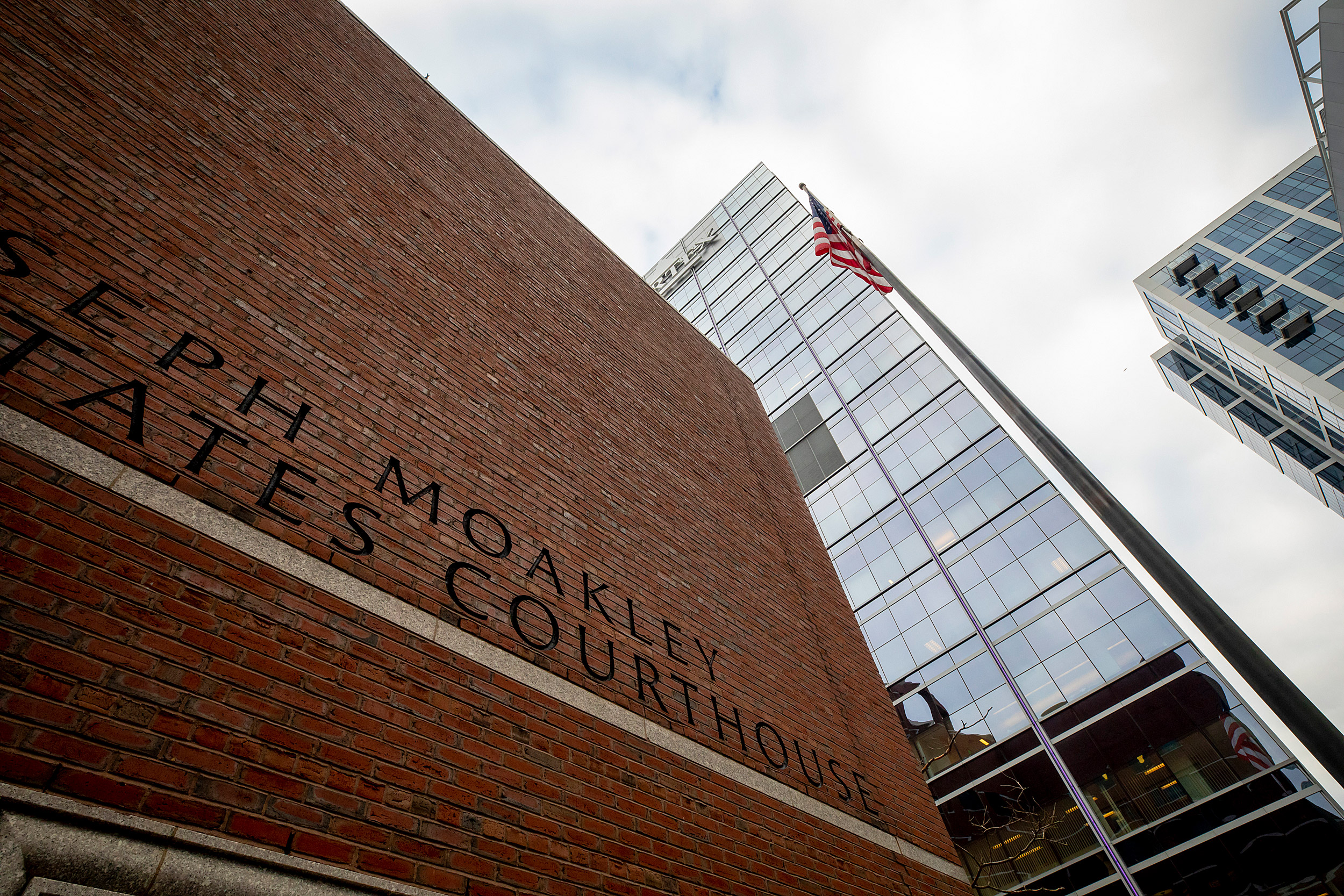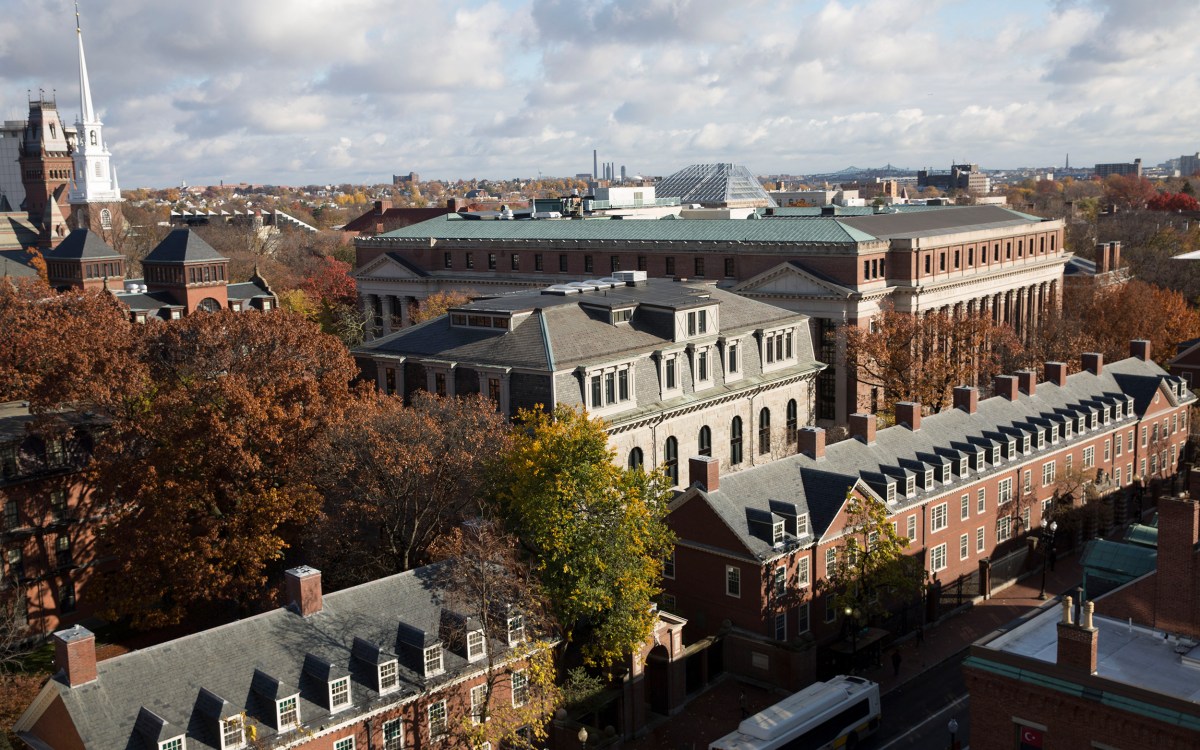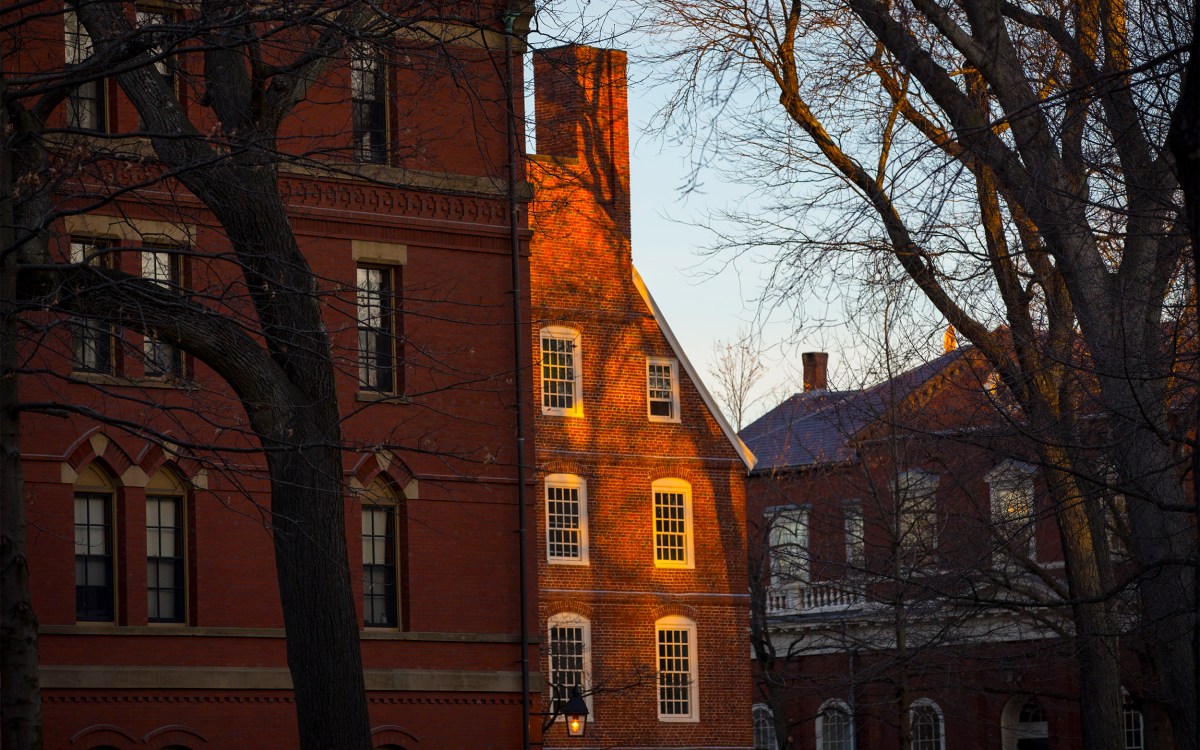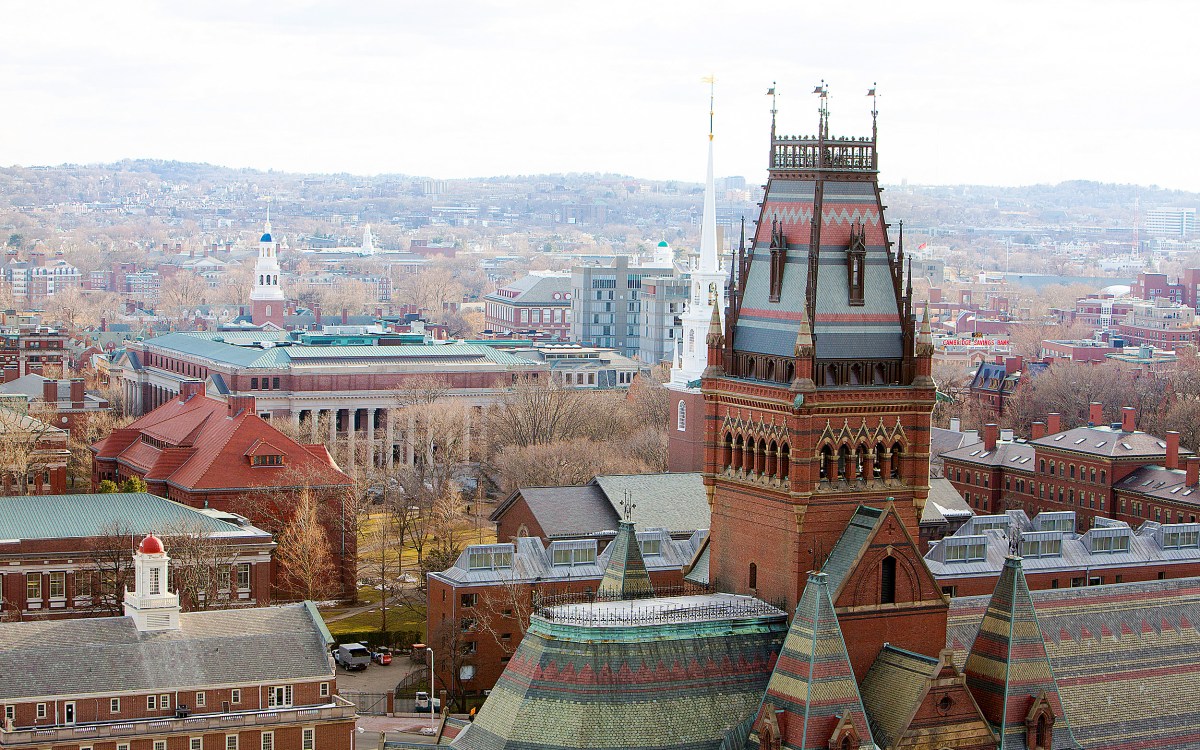
Closing arguments were heard in court at Boston’s Moakley Courthouse in the discrimination trial against the Admissions Department at Harvard University.
Rose Lincoln/Harvard Staff Photographer
Final arguments in admissions suit
Lawyers for Harvard defend University practices, warn of dire consequences if overturned
During a final court appearance, lawyers representing Harvard again rejected allegations of discrimination against Asian American applicants to the College and warned Wednesday afternoon of dire consequences for all students if a group of activists succeed in their effort to eliminate race and ethnicity from among the many factors considered in the admissions process.
The lawsuit was initially filed in 2014 by Students for Fair Admissions (SFFA), a group spearheaded by Edward Blum, a staunch opponent of race-conscious admissions who over many years has mounted legal assaults on civil rights protections for members of underrepresented minority groups. SFFA has filed a similar lawsuit against the University of North Carolina that claims the school uses race as more than a “plus” factor in admissions and has not explored other race-neutral alternatives to achieve diversity.
Blum also was the driving force behind two earlier cases that challenged the use of a race in the holistic admissions process at the University of Texas at Austin. The first case was heard twice before the U.S. Supreme Court, which ultimately upheld the admissions policies. The second case, brought by SFFA, was recently dismissed.
“We have trials because trials should be decided by the facts and evidence elicited under oath, not by unsupported accusations and vitriol directed at lawyers or individuals,” said William F. Lee, one of the lead attorneys in Harvard’s case.
Lee, himself Asian American, said Harvard’s admissions process, which involves various checks and balances and a 40-person admissions committee, does not discriminate against Asian Americans, uses race as only one factor among many, and does not engage in racial balancing. He concluded that Harvard “could not achieve its educational mission without considering race in the admissions process.”
In several previous decisions in recent decades, the Supreme Court has ruled that race can be considered as part of a university or college’s efforts to create a diverse learning environment for all students.
During Wednesday’s session in Boston’s John Joseph Moakley U.S. Courthouse, Judge Allison D. Burroughs interrupted the presentations briefly to ask SFFA attorney Adam Mortara why the plaintiff had never identified or presented as witnesses any students negatively affected by Harvard’s policies. “What am I supposed to do with the fact that you haven’t shown me any students you think should have gotten in?” the judge inquired.
Harvard’s legal team jumped in.
“Not a single application of any one of their standing members went into evidence,” said Lee, adding that he found SFFA’s failure to produce an admissions file or applicant “truly remarkable.”
Lee said Harvard has worked hard to make its campus more diverse in the past 40 years, increasing the number of Asian American undergraduates from 3 percent in 1980 to the 22.7 percent admitted to the Class of 2022. The numbers of African-American and Hispanic students have also steadily increased, said Lee. That diversity is key to Harvard’s educational mission, he said, noting that the elimination of race in the University’s admissions policies would drastically reduce the number of Hispanic and African-American students in the first-year class.
Such a result “would be wrong legally; it would be wrong morally,” said Lee.
Kristin Penner ’89 and her daughter, Lilah Penner Brown ’23, arrived at the courthouse more than an hour before the hearing began, hoping for seats. Both were sporting the bright blue T-shirts of the Harvard and Radcliffe alumni and students organization Coalition for a Diverse Harvard, one of the 25 groups that have filed amicus briefs on behalf of the University.
“This case is especially important to protect the diversity that I hope to experience in College,” said Penner Brown, who will enter Harvard in the fall.
“I am in support of diversity and race-conscious admissions. At the very core, that is why I am here.”
Harvard sophomore James Gui
Penner, a member of the organization’s board of directors, said the group sees the case as “vital not just at Harvard but in higher education throughout the United States. That’s something that I care about so deeply. I hope that my children can have the same or better experience of getting to meet so many diverse people during college. It’s frightening to think about going backward rather than going forward.”
Penner met her husband, who is African-American, at Harvard. She said it is important for biracial children to “have other people who are willing to stand up with [them]. It seems like having that critical mass is vital to feeling the confidence that your voice can be heard in college.”
Nearby, six undergraduates from Amherst College in Western Massachusetts waited patiently, also hoping for a spot in the courtroom. The students, who drove through the previous day’s snow to attend, said they wanted to show solidarity with Harvard and to support its admissions policies.
Since the last trial proceeding on Nov. 2, Harvard and SFFA have filed roughly 300 pages of posttrial briefs outlining what each side believes the facts have shown, how the law should be applied, and why the judge should rule in their favor. Last month, organizations supporting Harvard filed additional briefs in support of the University.
Making his case for SFFA, Mortara again argued that a statistical analysis of several years of recent admissions files demonstrated that “racial stereotyping crept into Harvard’s process.” As in earlier hearings, Harvard’s lawyers responded that SFFA’s statistical model was flawed because it had excluded key data. Harvard’s admissions process, they argued, accounts for myriad factors, from school support ratings (including letters from teachers and guidance counselors) to student essays to ratings by alumni interviewers. These factors, they said, were more accurately incorporated into the analysis performed by Harvard’s statistical expert, David Card, a professor at the University of California, Berkeley, who specializes in labor economics.
“Harvard’s analysis tries to model the actual admissions process,” said Harvard co-counsel Seth Waxman ’73.
Citing previous Supreme Court admissions-case rulings requiring that each applicant be evaluated on an individual basis, and banning the use of race as a defining feature that makes a difference as to whether an applicant is accepted or rejected, Waxman said Harvard holds to that law “in every respect.”
The fifth-floor courtroom was filled to capacity with onlookers, including Harvard students and alumni who stood against the back wall and sat in the aisles. Also in attendance were Harvard President Larry Bacow and William Fitzsimmons, the College’s dean of admissions and financial aid, and Marlyn McGrath, the director of admissions, who both testified in the fall.
Genevieve Bonadies Torres, an attorney from the Lawyers’ Committee for Civil Rights Under Law, representing prospective and current students and alumni, argued that SFFA had “engaged in its own act of erasure” by using an incomplete statistical analysis and ignoring important information in applicants’ files. She said that a diverse student body helps students confront stereotypes and counterbalance racial biases, and prepares them to face an increasingly complex world. Torres called Harvard’s process both “necessary and highly individualized.”
“Eliminating the consideration of race would sharply reduce the number of black, Hispanic, and other minority students on campus,” said Torres. “All students would lose out from this decline.”
Jennifer Holmes, a lawyer with the NAACP Legal Defense and Educational Fund, Inc., spoke on behalf of the 25 Harvard student and alumni organizations that submitted amicus briefs supporting the University.
Holmes cited the comments of student witnesses who said that “learning in a racially diverse student environment shaped their educational experiences,” while helping them build solidarity, challenge assumptions, and dispel stereotypes. Holmes called the lawsuit “an attack on Harvard’s ability to provide a racially inclusive and diverse educational environment from which all students benefit.”
Harvard sophomore James Gui, who identifies as Asian American, came to court in the fall to support his friends who testified in Harvard’s defense. He was back on Wednesday.
“I wanted to see it through to the end and show my support,” said Gui. “I am in support of diversity and race-conscious admissions. At the very core, that is why I am here.
“Being able to live in a diverse environment has really opened my eyes,” he said, “not just to my own identity … but also to the identity of others.”
Burroughs is expected to issue a final ruling in the coming months.








